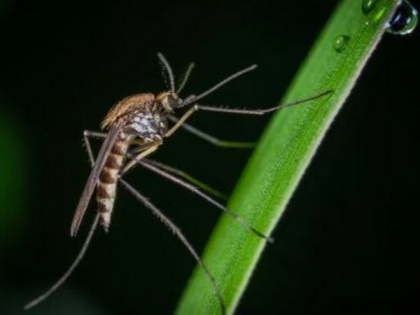Scientists take step forward in developing vaccine for leishmaniasis
By ANI | Published: January 11, 2021 08:43 PM2021-01-11T20:43:37+5:302021-01-11T20:55:07+5:30
The researchers from University of York have taken an important step forward in developing a controlled human infection model to test vaccines for one of the most neglected tropical diseases 'leishmaniasis'.

Scientists take step forward in developing vaccine for leishmaniasis
The researchers from University of York have taken an important step forward in developing a controlled human infection model to test vaccines for one of the most neglected tropical diseases 'leishmasis'.
The study identified and characterised a new strain of Leishma parasite that will form the basis of a new controlled human infection model for the disease which is transmitted by the bite of sand flies. The team then produced the parasite to the standards required for use in human clinical studies.
Around one billion people globally are estimated to be at risk of being infected with leishmasis in more than 98 countries.
The use of controlled human infection models has already proved invaluable in accelerating vaccine development for cholera, malaria, typhoid, influenza and other important infectious diseases. Such models are also being developed as part of the fight against COVID-19.
Professor Paul Kaye from the Hull York Medical School who led the study said: "This is an important milestone for leishmasis vaccine development, bringing us a step closer to having the tools needed to evaluate potentially life-saving or life-changing vaccines in a timely and cost-effective manner.
"Reducing the financial burden associated with large scale clinical trials is of particular significance, given the limited funding available to develop vaccines for neglected diseases such as leishmasis."
Leishmasis is characterised by slow-to-heal skin ulcers that may spread to other areas of the body or mucosal surfaces causing lifelong stigma, or to the internal organs resulting in the potentially fatal visceral leishmasis. Current drug treatments are inadequate and there are currently no vaccines for human leishmasis. There are a reported 1,500,000 new cases and 20,000-30,000 deaths annually.
The next phase of the research project will seek to recruit healthy volunteers to participate in a clinical trial to see how the body responds to the parasite and to determine how many participants are needed in future vaccine trials to determine vaccine efficacy.
( With inputs from ANI )
Disclaimer: This post has been auto-published from an agency feed without any modifications to the text and has not been reviewed by an editor
Open in app